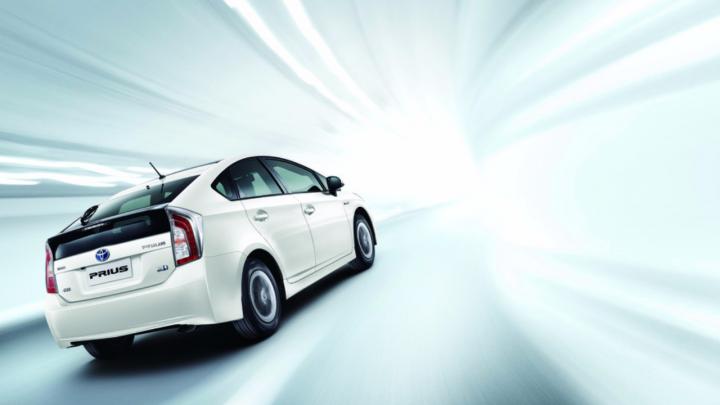

As environment-friendly cars become an increasingly important market segment, more and more companies are heavily investing in R&D to come up with tomorrow’s winning technology. But technological trends are only half of the picture; on the communication front, car companies are eager to dress themselves in green. In China, many foreign automotive brands have begun to create innovative taglines and car slogans in Mandarin.
In this Slogan Analysis we will firstly analyze the meaning of three eco-car slogans. We will then discuss Volkswagen and Honda’s differing choice of colours to symbolize the environment, as well as Toyota’s choice to not mention the environment in its Chinese communication for Prius, while heavily emphasizing its environmental credentials in the US. Lastly, we will look at concepts that other similar car slogans call on to reach their target audiences in China.
The slogan literally means “the color blue creates our future”. In this slogan, the key word is Blue (蓝) and its significance is profound. The colour blue conveys an image of purity, balance, preciseness and technology. The word also refers to elements such as the sky and the ocean. The colour blue, in Chinese as in English, also brings to mind the word “Blueprint” (蓝图), a well thought-out plan to achieve something ambitious. As a blue print is a technical document that is future oriented, it makes sense for Volkswagen to associate their brand with this concept. The Chinese slogan “蓝•创未来” clearly expresses Volkswagen’s determination to utilize its BlueMotion Technology to build a brighter future.
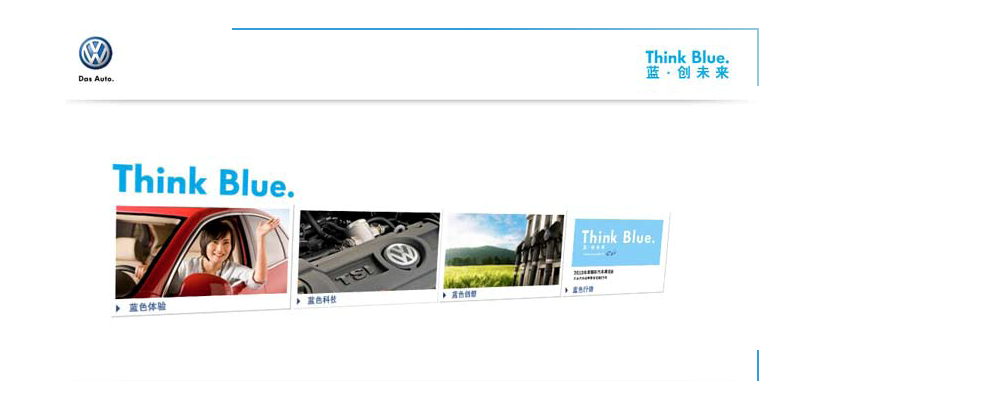
The slogan can be translated as “Let green technology describe the future”. The colour green symbolizes nature and the environment, while “green technology” refers to the eco-friendly hybrid technology. Like Volkswagen’s slogan, Honda’s slogan expresses the firm’s desire to build a greener future through technology. The major difference, however, is that Honda makes a bolder and more direct statement rather than relying on subtle connotations.Regarding the Chinese word “描绘”, figuratively it means “to describe”, while its direct meaning is “to paint”. Thus, the Chinese slogan can have a second expression: to paint the future with the green (ecological) color. This gives the tagline strong imagery in addition to its verbal meaning. Furthermore, “Civic”, the English brand name of the vehicle, relates to the citizen. Honda’s original idea for using this name was to position this vehicle for the mass market; however, when considered in relation to the car’s green technology, the meaning is transformed into civic or social responsibility for the environment.
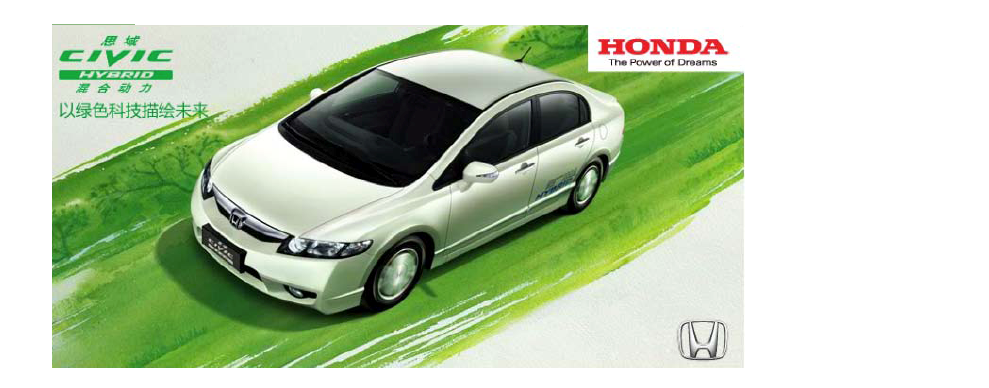
The car brand name Prius refers to the word “prior” in Latin, meaning before, previously, formerly, etc. Similarly, in the Chinese slogan, the word “pioneer” has the same connotation as the word “Prius” in Latin. According to Toyata, the company chose this name because they regard Prius vehicle as the predecessor of cars to come. This message is also reinforced in the Chinese slogan.
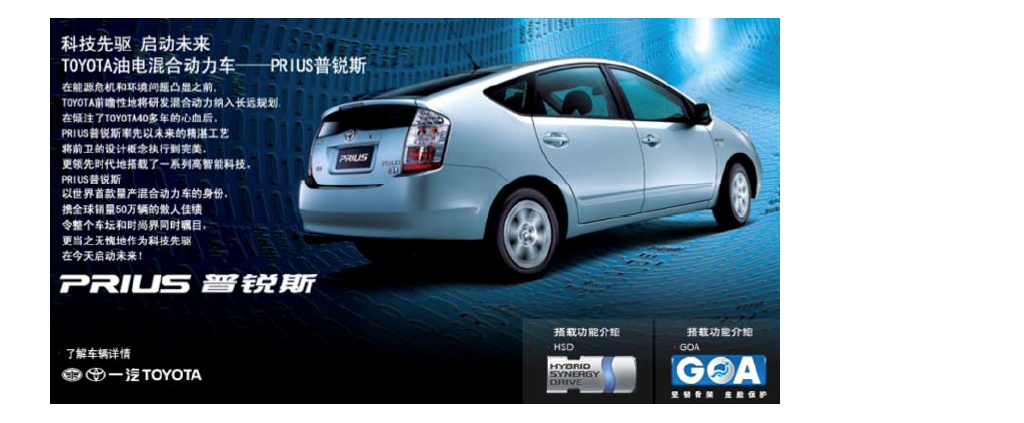
Several interesting points for discussion arise from this analysis:
Green vs. blue: which colour symbolizes the environment?
Both Volkswagen and Honda have created special slogans emphasizing their environmental characteristics; however, they differ in their choice of color to support their promises. Generally speaking, the colour green has been used most often to represent the environment, so blue may seem an odd choice for eco-friendly car technologies. However, the color blue, as we outlined earlier, is not only associated with images of the sky and ocean and notions of purity, it is also closely associated with technology. It is thus an excellent choice for companies who want to emphasize the technological aspect of a product while still appealing to eco-conscious consumers. To be truly successful, eco-products must find customers outside their traditional base (young, educated eco-conscious professionals) and remind other consumer groups that eco-friendliness and technological performance are not mutually exclusive notions.
A hybrid that forgets the environment?
As we saw earlier, the Toyota Prius’ Chinese slogan completely ignores the environment or nature; however, a hybrid vehicle is inherently environmentally friendly. The Chinese slogan stands in stark contrast to its American counterpart: “Prius, mean but green”. This revision in communicated meaning demonstrates differences that exist in consumer perceptions and mindsets in China as compared to other countries. While in the US, consumers respond very well to environment-related messages; the Chinese customer may not yet place a high value on this. References to the car’s performance may be more likely to woo the Chinese consumer. Alternatively, Toyota may have felt that since the Prius is a hybrid car which is inherently environmentally friendly, this is sufficient emphasis on the environment for the Chinese market.
Technology, future, and the environment
The slogans we have analyzed mention three important elements: technology, the future, and the environment. A look at a sample of 93 other car slogans show that performance, lifestyle, future, technology and design are mentioned more frequently than the environment. This might seem surprising, but confirms the need for companies to develop messages that go beyond “Be green and good” and appeal to a wider group of potential customers. It seems a lot of communication by car companies in China is still focusing on performance.
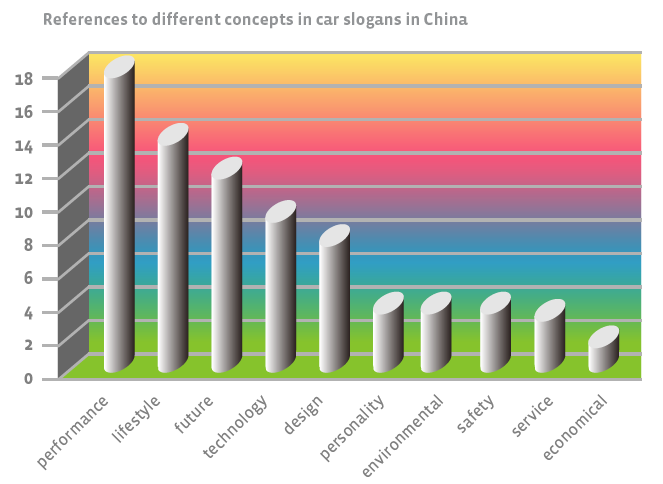
DOWNLOAD REPORT
A Labbrand Group Company © 2005-2024 Labbrand All rights reserved
沪ICP备17001253号-3To improve your experience, we use cookies to provide social media features, offer you content that targets your particular interests, and analyse the performance of our advertising campaigns. By clicking on “Accept” you consent to all cookies. You also have the option to click “Reject” to limit the use of certain types of cookies. Please be aware that rejecting cookies may affect your website browsing experience and limit the use of some personalised features.